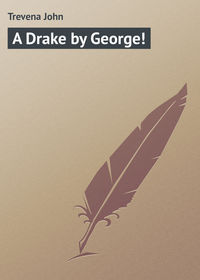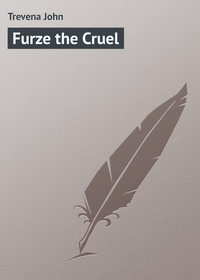 полная версия
полная версияThe Plowshare and the Sword: A Tale of Old Quebec
"Put up your swords!" he shouted. "I charge you, sir priest, in the King's name to cease fighting with this man, who is my guest and our common ally."
"Corpus Domini!" cried Laroche, staggering towards the commandant, his big face flushed with excitement and liquor. "Order the wind to cease, commandant, or yon river to stop its flow. Attempt to restrain La Salle when his blood is hot! Know you, sir, this is an affair of honour."
"It is not you who shall suffer from the breaking of the law, sir priest," protested the representative. "By St. Gris! a master-stroke!" he exclaimed, unable altogether to suppress his soldierly instincts.
La Salle, foreseeing an interruption, had closed with his enemy in a vigorous skirmish of rapid and clever feints, culminating in a stroke the admirable technique of which had wrung an involuntary testimony from the commandant. Van Vuren escaped by a side movement, which to the onlookers partook of the nature of a lucky accident. But there was a smear of blood upon the priest's rapier when he pressed again to the attack.
"Yon Dutchman shall be the only sufferer," said Laroche. "Only bloodshed can satisfy the Abbé La Salle. Nature must run her course. There stands a scar upon my brother's back, made by this Van Vuren's sword four years ago at the corner of a dark turning in Avignon. What was the cause? Well, commandant, a woman they say is always the cause; but my friend is, like myself, a priest, and therefore above suspicion so far as women are concerned. Dutchmen have hard heads and slow brains. It is also said of them that if they can run from an enemy with honour they will run. My brother was one night returning home after administering at a sick bed; beside a corner he heard a step, and, before he could turn, a sword point went in his back. The Dutchman's honour was satisfied. He ran, but he was marked as he escaped. In Avignon during those days Van Vuren was known by another, and less honourable, name. But the devil may wear a halo and remain the devil."
While the abbé spoke, some heavy clouds, which had gathered over the heights, darkening the night, began to discharge themselves in rain, which presently lashed in so heavy a torrent that the pine torches were extinguished, and the men holding the lanterns had much difficulty to maintain the feeble flames. La Salle, with his back to the storm, drove the Hollander before him through the hissing rain, the people falling away as the duellists advanced, their blades gleaming and grating through the silvery lines of water. A muffled shout went up. Van Vuren had been palpably hit upon the shoulder. La Salle smiled grimly and still pressed on, lunging repeatedly over the captain's guard, taking every risk of a wound as he hastened to make his victory sure.
Roussilac cleared the road, the people only obeying when the soldiers prepared to enforce their officer's order.
"Gentlemen," cried the commandant, advancing, with an imprecation upon the rain, "drop your swords, I pray of you."
"The devil seize you!" shouted La Salle, throwing out his left arm. "His point was not an inch from me."
"Put up your swords," repeated Roussilac, boldly disregarding the remonstrance. "Sir priest, it is the will of the Cardinal."
These were potent words, and for one moment the abbé hesitated. He lowered his point with an angry side glance upon his interrupter, and the affair would then have finished had not a dark figure stopped out from the shadow under the cliff, and thrown itself into position with the muffled warning, "En garde!"
"Ah, dog!" cried La Salle, starting forward through the rain with scarcely a ray of light between him and his adversary.
When a line of lightning broke the sky, an exclamation burst from his lips and his bold cheek blanched. During that momentary illumination La Salle beheld his enemy clearly. He saw a mean man clad in a suit of faded red with torn and stained ruffles; his hair gathered behind and tied with a piece of grass; his hat broken out of shape and adorned sadly with half a plume. And when Laroche held up a lantern, the fighting priest saw further that what he had taken for a negroid skin was merely a mask which covered the stranger's face, slit with holes for the eyes and mouth.
"This," muttered La Salle, cold with terror as he warded off an attack which was far more aggressive than that of Van Vuren, "this is the work of Satan."
Roussilac touched D'Archand, pointing along the path which bent down to the river, and whispered, "Wait for the lightning."
When the flash passed, the master saw the big figure of the Dutchman hurrying to reach his ship, his sword still drawn in his hand.
"Then, who is this?" exclaimed D'Archand, with a frightened oath, indicating through the beating rain the man behind the mask.
Roussilac signed himself, and said nothing.
Laroche hurried up, his big face streaming, the lantern shaking in his hands like a will-o'-the-wisp, his attitude grotesque with terror.
"What witchcraft is here?" he shouted. "See you how this Dutchman has changed body and appearance as well as name?"
"Van Vuren is not here," said Roussilac gravely. "He ran when the abbé lowered his sword; and so soon as he had gone – nay, before – yonder figure stepped out of the darkness under the cliff and challenged La Salle. You see he has covered his face. It is the mad Englishman who fights for the love of fighting. And the English cover the earth like flies."
"I shall stiffen his arm, be he heretic or devil," said the stout priest; and he went and stood near the duellists, and, boldly facing the stranger, cursed him prolifically in the name of Holy Church and the King of Rome.
The stranger did not turn, and only acknowledged the anathemas by a perfectly distinct laugh which issued weirdly from the mask.
No man had ever called La Salle's bravery in question. Facing an enemy, who had started as it were from the rocks before him in the rain and the lightning, he met the resolute attack and parried every lunge. In truth, the priest was a fine swordsman; but his resource in skirmish and detail was here taxed to the uttermost. All he could do at his best was to hold out the short sword, which flashed in and out of the rain, controlled by a wrist of steel and an iron arm. The masked man gave forth no sound of hard breathing. He was a master of swordcraft, and La Salle knew that he had met his match. Here was no nervous Dutchman to be trifled with; no hectoring soldier with a hearty oath and bluff swagger. La Salle sweated, and his breath came pricking in hot gasps, and a cold thrill trickled along his back when he allowed himself to wonder who the enemy might be.
The stranger guarded against treachery, hugging the cliff lest anyone with hostile intentions might pass behind and reach his back. Had he moved out, he would assuredly have beaten down the abbé's defence; as it was, the latter was acting upon the defensive, and doing so with much difficulty.
The rain stopped on an instant. As suddenly the clouds fell back to admit the light; and the rugged shadows of the rocks traced fantastic shapes along the Rue des Pêcheurs.
The strained voice of Laroche broke the stillness.
"A touch!"
"Liar!" shouted back the hard-driven but proud priest, although he felt warm blood oozing between his fingers.
The masked man feared the light which followed the sweeping away of the storm clouds. He bestirred himself, feinted with amazing rapidity within and without the pass, then his limber wrist stiffened for the second, and his point darted in like a poisonous snake over the hilt and wounded La Salle upon the muscle of the sword-arm.
"A touch!" shouted the captains together, both too excited to have any thought for the law.
"An accident," gasped the proud priest. "A misfortune."
"Well, here's a touch!" called a deep English voice; and as the challenger made his nationality known he lunged beneath the abbé's blade, thrusting out until the blood spurted upward in a jet.
"Yes, yes. A touch – I confess," panted La Salle; and he staggered back, crossed his legs, and fell heavily.
"By St. Michael!" shouted the fat Laroche, furiously pulling out his sword and reaching towards the shadow under the cliff. "You shall pay, assassin, for this."
The mysterious stranger chuckled, disarmed Laroche in a moment, scratching the stout abbé's wrist with his point, and before the two officers and the handful of soldiers could bestir themselves, he had disappeared round the bend of the Rue des Pêcheurs. Roussilac ran to the ending of the way, but found no sign of the masked man, who had vanished as mysteriously as he had arrived.
CHAPTER III
CHRISMATION
The day following the duel La Salle was under the hands of the surgeon – who, in the ignorance of that age, treated his patient for loss of blood by letting yet more – and Roussilac was sending forth men with the charge to find the hiding-place of the Englishman, and to fail not at their peril. However, they did at that time fail. Not even the cunning hunchback Gaudriole had been able to discover the habitation of the mysterious swordsman who had dared to enter the fortress and openly defy its officers and men.
Even the Indian might have walked behind the scrub of tangled willow-growth over the cave-dwelling, and known nothing of it, had his eyes or his nose failed to discern the thread of wood-smoke often curling above the blackened crater of a hollow tree which had been ingeniously converted into a chimney. A grass-covered knoll made the roof of the dwelling, the entrance to which only became apparent from a stone causeway, shelving gradually between the roots of pine trees, and enclosed by massive logs which banked the eastern front of the burrow.
Upon the threshold of this rude home a brown boy was playing with a wolf-hound, while awaiting his father's return from that daring visit to the fortress.
Around him Nature thundered like a great organ. The leaden waters of the great discharge roared where the bush made a screen which no eyes could pierce; the falls of the Ouiataniche smoked below. Spray flew above the scrub, bathing the dog's fur and the strong arms of the child. The one bayed, the other shouted, to the hard north wind that swept overhead, lashing the branches, tearing the summits of the pines, snatching the dry wisps of grass and whirling them under the clouds. The dark bush groaned. The great rocks bore their buffetings with hollow protests. Ravens croaked as they swung up and down; divers wailed from the weedy creeks. The boughs chafed, and the plumed foliage clashed together, loosening a rain of cones and showers of pine needles.
"I want to grow. I want to be strong," shouted the boy to his panting companion. "I want to wear a sword and fight. I want to be a soldier and shed blood. I want to live!"
The dog broke away barking, and rushed through the scrub. The child ran after him, and they met upon the dripping rocks, which made a natural fortification to the cave beyond.
A magnificent spectacle rolled away, as full of sound and motion as a battlefield. Well had the Indians named that place the Region of the Lost Waters. Islands heaved out of the raging expanse, small and densely covered with torn vegetation, every ridge of pine-crested rock moaning under the north wind, splintered and rough and ragged, scarred like the duellist's arm. About these islands the separate torrents thundered, seeking outlets for escape. There were a hundred channels, each striving to be the main, each at war with all others, each leaping white-crested down to join its rivals at the stupendous fall. Every separate discharge lifted up its voice to drown the combined clamour of its rivals.
A canoe shot the rapids between two islands, quivering like an arrow in its flight. It swept down, a mere feather upon the water, with only a shell of rough bark between its two occupants and the hereafter. The steerer, a handsome and pure-blooded woman of the Cayugas, crouched like a figure of bronze against the cross-piece, wielding her paddle with an easy carelessness which spoke of perfect confidence. By a turn of her wrist the shell of bark swept off a projecting rock; by a deft motion of her body, almost too subtle for the sight, the canoe glanced from a reef where the waves were wild; another, more determined, motion, and the fragile thing pierced a sheet of spray and swept to the shore. The child caught the shell and held fast, while the man who had conquered the fighting priest jumped nimbly to the sand.
"Brave boy, Richard," he cried. "Your mother and I looked out from yonder bend between the islands, knowing that our son would be awaiting us. Tell me now, how have you fared during our absence?"
The boy put out his lean arms, already tight with muscle, to greet his mother.
"I have been hunting by the moon," he answered. "Last night I shot a deer, and to-day have cut it up. A portion of the meat is cooking now."
The soldier of fortune reached an arm round the boy's shoulders and drew him close. "You are a man, my Richard. You shall never know what it is to lack strength."
Night settled down. The lord of the isles left the cave, and, seating himself upon a bank, smoked a long pipe, which he had received as a gift from Shuswap, chief of the Cayugas, with whom he had allied himself by marriage. Silently he drew the smoke through the painted stem, then handed the pipe to his wife, and she smoked and passed the quaint object to her son, who smoked also with a strange expression of sternness upon his child's features.
"Was the meat good, father?" he asked, as he handed back the pipe.
"Somewhat too fresh, my son," the man answered.
"Was the deer well shot?"
"It was well done, Richard."
"It is not easy to shoot straight in the moonlight," the boy said. "But I shot no more than once. My arrow went true to the side of the neck, and Blood followed and pulled the creature down."
The great hound looked up with open mouth, and heavily flapped his tail.
The boy spoke both English and Cayuga, the former more perfectly than the latter. His father and mother spoke both languages, each having taught the other the words of a strange tongue. The woman was tall, of a type which was soon to grow extinct, her features as regular as those of a Greek statue, her eyes and hair a deep black, her skin a trifle darker than fawn-colour. Like all the proud daughters of the Iroquois, she knew well how to handle the axe and bow. Among her own people, in the days of maidenhood, her name had been Tuschota; but by her English husband she was called Mary.
He, the lord of the isles, was almost mean in stature, with a lean, careworn face marked with decisive lines of character, grey-eyed and thin-lipped. His body was clad in a much mended suit of faded red, an old hat partly covered by a broken feather, with moccasins and leggings of his wife's make. A short sword swung behind him by a rough belt of buckskin, and a hunting-knife, the blade hiding in a beaded sheath, hung closely to his right hip. It was hard to tell his age; he had the eager face of youth under the bleached hair of middle-age. His wife and only child called him Thomas or Father, as did the neighbouring Indians of the allied Iroquois tribes; but none of them knew him by any other name, except that of Gitsa, the sun, or, as they intended to convey, "The strong one who sometimes covers his face."
"Father," young Richard exclaimed nervously, "shall you go away to-night?"
"Be silent, child," said the mother. "It is not for the young to know the father's will."
"Nay, Mary," said the grave man. "I love the lad's spirit. Let him speak his mind."
Richard came nearer and put out his hand, a flush upon his brow. He patted the hound's back, its head, handled the frayed hem of his father's cloak, and then his brown fingers passed on to caress the hilt of the sword upon which his eyes had been fixed while his hand wandered.
"Father," he exclaimed, in a burst of boyish passion, "I want to wear a sword."
The man's grey eyes kindled as he heard this strong boy speak. Child as he was in years, the father's spirit was in him, and the father rejoiced.
"What would you do with a sword?" he said, frowning. "Would you cut your bread, or make kindling wood for the fire? Have you not your bow and arrows?"
"I can bring you down the bird flying, or the beast running. I can shoot you the salmon in the water. Now I would learn the sword, that I may go out with you, and fight with you, and – and protect you, my father."
The man did not smile; but he frowned no more.
"Son," he said, in tones that were still severe, "you are yet over young to join the brotherhood of the sword. The same is a mighty weapon, never a servant, but rather a tyrant, who shall destroy his wearer in the end. Know you that the Master of the world said once, 'All they that take the sword shall perish with the sword'? Even as the tongue is the sword, an unruly member which no man can restrain. It answers an enemy without thought, even as the tongue throws back an angry word. It passes a death sentence lightly, even as the tongue curses an enemy's soul. It strikes a vulnerable spot in one mad moment; and when the passion sinks, then the hand fails, and the eye shall close for shame. Only the sword changes not, remaining cold to the eye, ready to the hand, and responsive to the first evil thought in the heart. You shall wear the sword some day, my son. Be content till then."
"I want to fight Frenchmen," the boy muttered. "Father, let me draw your sword. Let me see it flash in the moon. Let me feel its point."
The father's hand closed upon that of the boy, pressing the little palm strongly against the hilt. "Do not draw that sword, child," he said. "The virgin hand should hold a virgin blade."
He rose suddenly and disappeared along the white causeway. The mother and son were alone on the knoll, the black pines torn by the wind behind, the spray flying in front. The mother put out her well-shaped arm to the smouldering pipe, and drew at the mouthpiece, watching the excited boy over the triangular bowl. She spoke in the liquid language of the Cayugas, "Remember that you are very young, my son."
Richard turned passionately, and fanned away the tobacco smoke which wreathed itself between their eyes.
"I have lived fifteen years. I am strong. See these arms! See how long they are, and mark how the muscle swells when I lift my hand. I am weary of killing fish and birds and beasts. I would kill men."
"You would be a man of blood, son?"
"Even as my father. He has taught me to hunt. But when he goes down to the great river he leaves me here. You he often takes; but I am left. He goes down to fight. I have watched him when he cleans his sword. There is blood upon his sword. It is the blood of men."
"With whom would you fight?" said the mother, her voice reflecting the boy's passion.
"With the savage Algonquins in the far-away lands, the enemies of the Iroquois. And with the Frenchmen whom my father hates."
More the boy would have said, but at that moment the lord of the place returned with a sheathed sword and a velvet belt. The sword, a short blade like that which he himself wore, as slight almost as a whip, he tested on the ground, and in his stern manner pointed out a spot upon the summit of the knoll where the moonlight played free from shadow, saying, "Stand there."
The boy obeyed, stretching out an expectant hand.
His father gave him the virgin sword, fixing him with his stern eye, and suddenly whipped out his own blade, and exclaimed, in a voice which was meant to strike terror into the child's heart, "On guard!"
The boy did not wince, but threw up his point like an old soldier, and his face became wild when along his right arm there thrilled for the first time an indescribable strength and joy as the two blades met.
By instinct he caught the point, and parried the edge. By instinct he lunged at the vital spots, stepping forward, darting aside, falling back, never resting upon the wrong foot nor misjudging the distance. His father, who tested him so severely, smiled despite himself, and Richard saw the smile, and, confident that he could pass his father's guard, stepped out and took up the attack in a reckless endeavour to inflict a wound upon his teacher's arm.
The stern soldier of fortune played with the boy under the rushing north wind and the swaying light of the moon, while the mother stood near on the slope of the knoll, her eyes flashing, her nostrils distended, her bosom heaving with the passion of the sword-play. She noted how nobly the boy responded to his blood – the enduring blood of the high-bred Cayuga mingled with the fighting strain of the Englishman. She watched the sureness of his hand, the boldness of his eye. She saw how readily the use of the sword came to him, and once she sighed, because her husband had made her Christian, and she remembered the warning of the unseen God which her lord had lately repeated, "All they that take the sword shall perish with the sword."
A cry broke from her lips. Her husband's sword flashed suddenly across her vision, drew back, lowered, and fell like the falcon which had made its blow, and the point sprinkled a few drops of blood upon the bleached grass.
"Thomas," she exclaimed in her native tongue, "why have you wounded your son?"
"It is his baptism to the sword," her husband answered.
Maddened, not by the pain in his shoulder, which indeed he scarcely felt, nor by the sight of his blood flicked contemptuously at his feet, but at the indignity of the wound, the boy rushed at his father, and hit at him blindly as with a stick; and when the master caught and held him, and by the act reminded him that he was yet a child, he began to sob violently with rage.
"You shall pay," he flamed. "I will have your blood for mine. I will fight you again. I will kill you. I will – "
"Peace, child," interrupted his mother. "He is your father."
"Take him and see to him, Mary. I did but prick his shoulder," said the father. "So fiercely did he press upon me that I feared he might throw himself upon my point. The lesson shall teach him prudence."
"I am dishonoured – wounded," moaned Richard.
The father opened his doublet and displayed his chest, which upon both sides was marred by many a scar. Richard beheld, and blinked away his angry tears, as the passion departed from him.
"Must I too be wounded before I am a soldier?" he said.
"Ay, a hundred times," his father answered; and the boy turned away then with his former look of pride, and permitted his mother to wash and bandage the slight wound upon his shoulder.
Soon they came out together to the knoll where the silent man sat with the north wind roaring into his ears the song of battle. He looked up when they were near, and called, "Richard!"
The boy came, subdued and tired, and stood before his father.
"Kneel."
The boy obeyed. The lord of the isles fastened the velvet sword-belt to his son's waist, secured the coveted sword in its place, then stood, and drew out his own well-tested blade.
With it he struck the boy smartly upon the shoulder exactly over the wound, smiling when the child compressed his lips fiercely but refused to wince, and loudly called:
"Arise, Sir Richard!"
CHAPTER IV
MAKERS OF EMPIRE
As the days passed, and Van Vuren's attitude of diffident friendliness remained unaltered, Roussilac's suspicions began to leave him; and even La Salle modified his former opinions when he again walked abroad and discovered that out of the seventy-five fighting men who made up the military complement of the Dutch man-of-war, no less than thirty had been sent out upon a hunting expedition in the western forests. These, and other circumstances, tended to impress the minds of the French officers that their ally was acting in good faith; thus the commandant relaxed his vigilance, and Van Vuren was permitted to go upon his way unwatched. The Dutchman came seldom to the fortress, because he feared a second meeting with La Salle; but he frequently stole under cover of night into the forest to the north, where the Cayugas had their camp, little guessing that these visits were known, not indeed to the French, but to a company of five Englishmen, who had been thrown upon the coast to the west of the settlement of Acadie during a storm of the previous October, and had wintered in a cave among the rugged cliffs some little distance beyond the falls of Montmorenci, believing themselves to be the sole representatives of their country in all that land.





